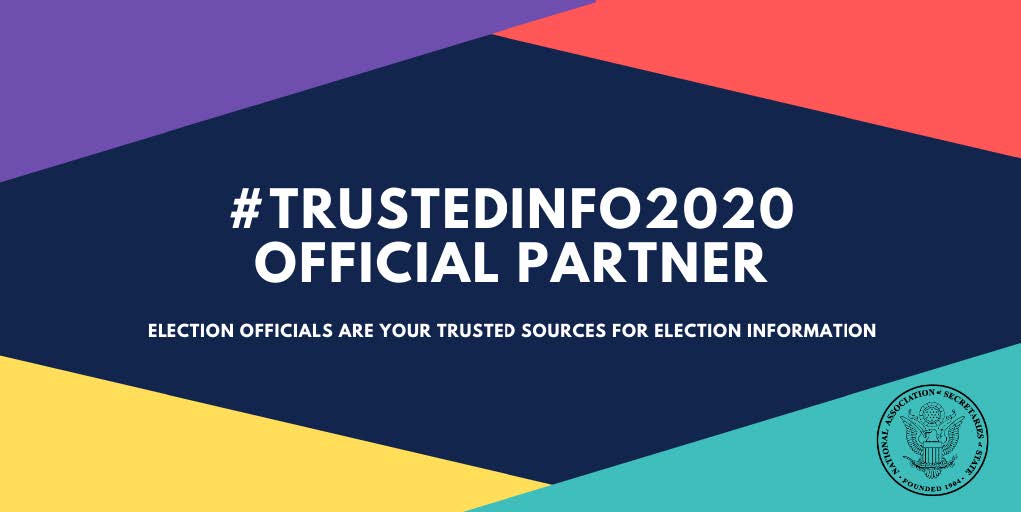In August 2020, ASD joined the National Association of Secretaries of State (NASS) and its other supporting partners on #TrustedInfo2020, an education effort dedicated both to promoting election officials as the trusted sources of election information and to promoting accurate election information more broadly. #TrustedInfo2020 emerged out of a desire to cut down on the mis- and disinformation from bad actors, including authoritarian regimes, that can surround elections. We now join a highly respected group of government, civil society, and private sector partners in supporting and amplifying this initiative.
#TrustedInfo2020 has an important role to play at this critical juncture. The coronavirus pandemic has complicated the process of both administering and securing U.S. elections. Because of the uncertain nature of the pandemic in the United States, there will likely be more changes to our election processes between now and November, and, therefore, more opportunities for malign foreign actors to spread disinformation and mislead citizens about how, when, and where to vote. Ensuring the integrity of U.S. elections in this environment requires that voters know where to go to get the most accurate, timely election information. #TrustedInfo2020 aims to highlight state and local election officials as credible, verified sources for election information.
When NASS launched this initiative in November of 2019, the nation’s secretaries of state began driving voters directly to election officials’ websites and verified social media pages in an effort to largely avoid mis- and disinformation. NASS feels that one of the best ways to combat foreign influence in the 2020 elections is to be united as Americans and to look to election officials for accurate election information. Through the #TrustedInfo2020 program, election officials have highlighted the importance of getting such information directly from them, social media companies have taken additional steps to promote accurate information about election processes, and civil society groups have been able to better tailor their efforts to support our 2020 elections.
With less than 90 days to go until the November election—and even fewer days until the first ballots are cast—the United States faces significant challenges on many fronts. Since the beginning of the year, it has endured a public health crisis that has claimed the lives of more than 150,000 people; experienced substantial protests and unrest in the aftermath of George Floyd’s death; and continued to conduct elections while trying to secure them from foreign adversaries. In the face of such challenges, it is imperative that government officials, industry representatives, and civil society work together to ensure that our presidential election is safe and secure. #TrustedInfo2020 is a great example of what such collaborations can and should look like.
When #TrustedInfo2020 was first conceived, no one likely foresaw anything like the coronavirus pandemic, but the campaign’s importance has only grown in light of the virus. For example, after the virus came to the United States earlier this year, #TrustedInfo2020 played an important role in helping ensure that many voters had correct and up up-to-date about their states’ primary elections, even when there were changes made on very short notice. And in addition to helping voters, the initiative has also helped election officials answer questions, solve problems, verify results, and ensure the integrity of each election.
As we embark on the last couple of months before the November 2020 election, ASD looks forward to being an active and supportive partner of #TrustedInfo2020. ASD’s research and analysis, including the Hamilton 2.0 Dashboard and Authoritarian Interference Tracker, have documented trends and tactics in authoritarian efforts that have helped democracies prepare for future threats, and we’re excited to help NASS and its supporting partners ensure that the 2020 presidential election is free, fair, and secure.
The views expressed in GMF publications and commentary are the views of the author alone.





